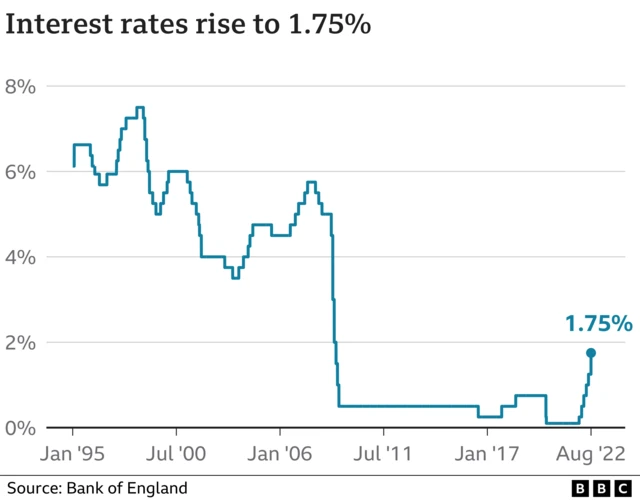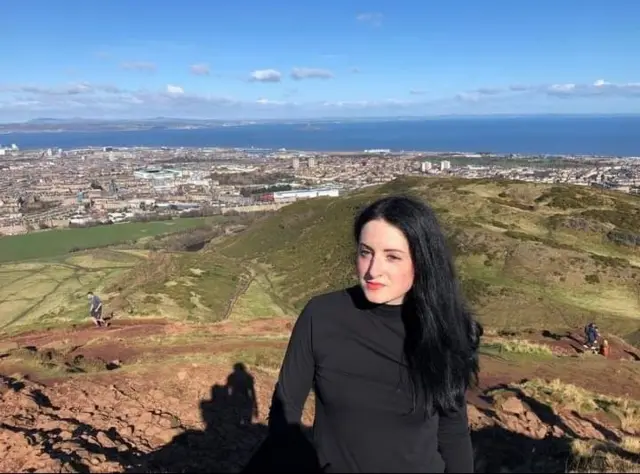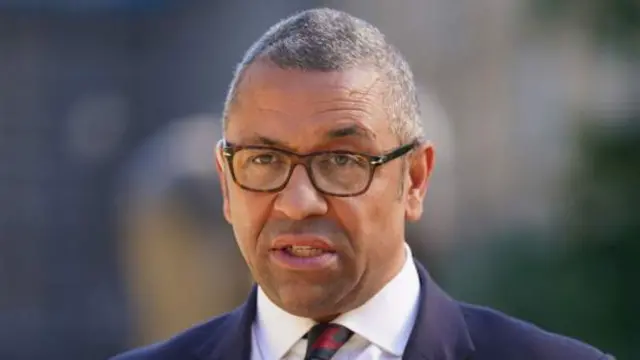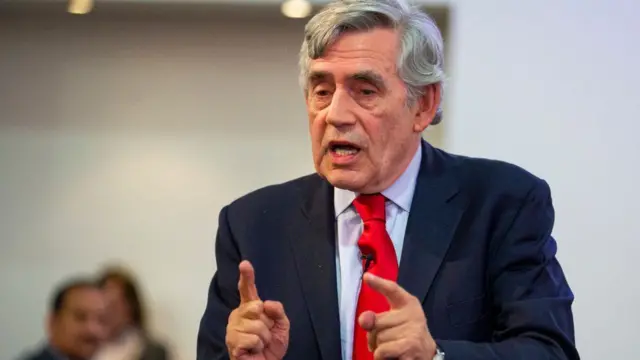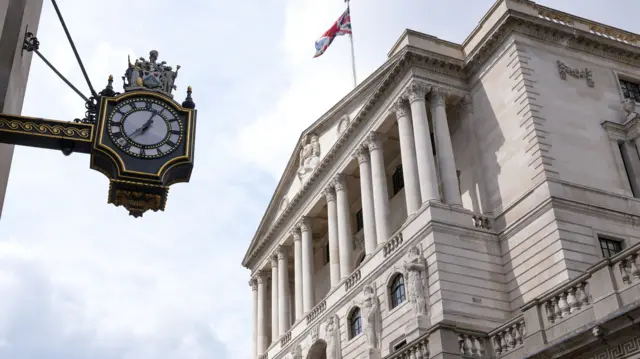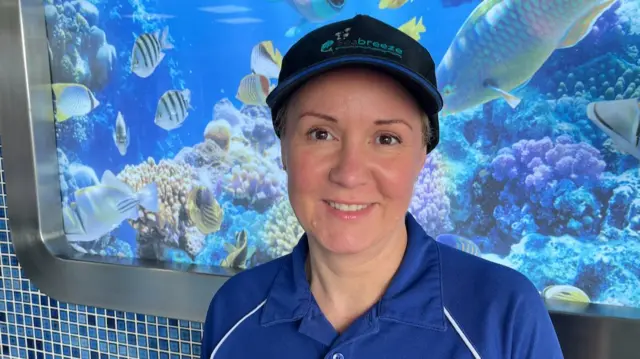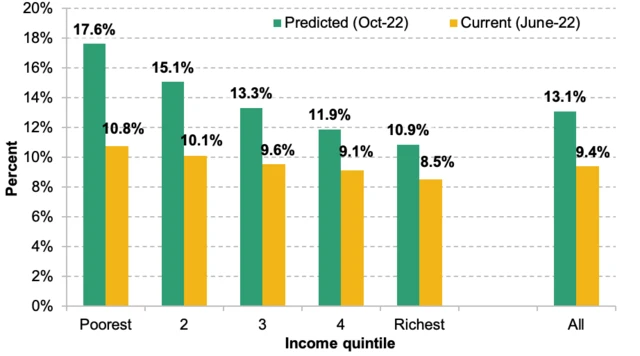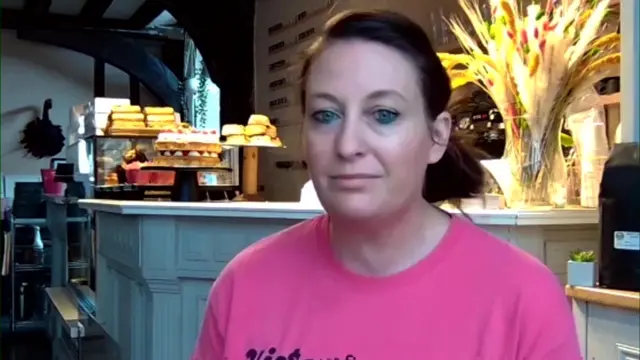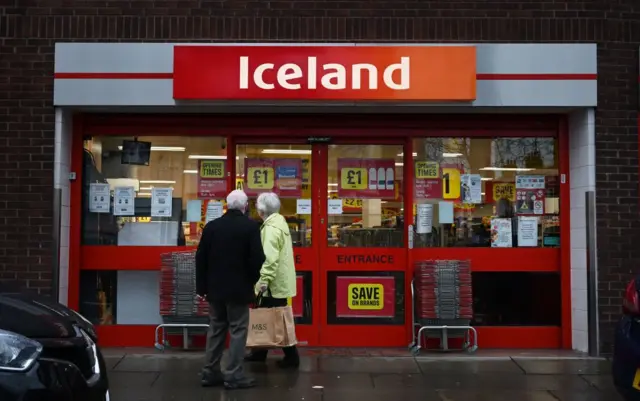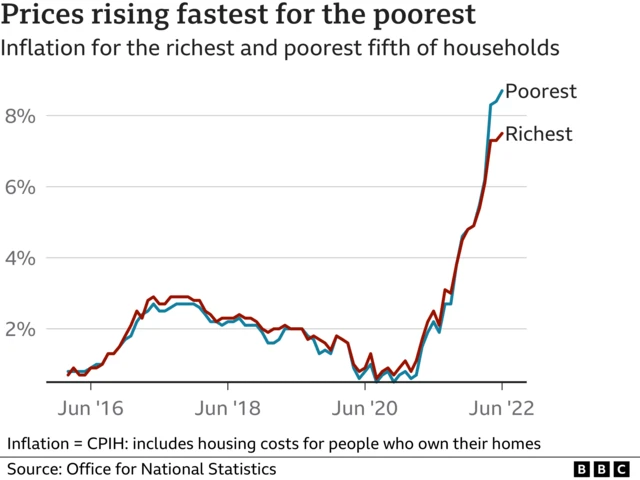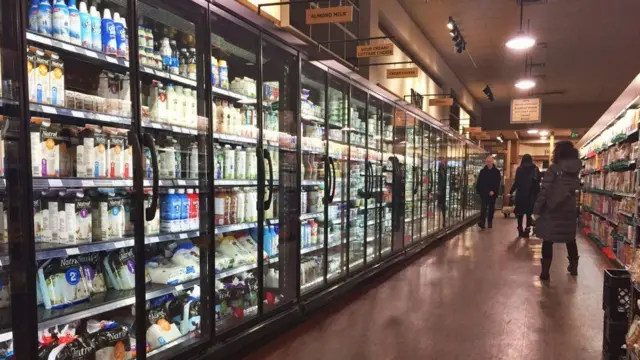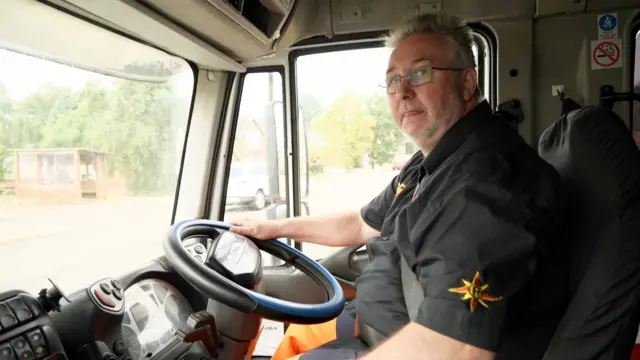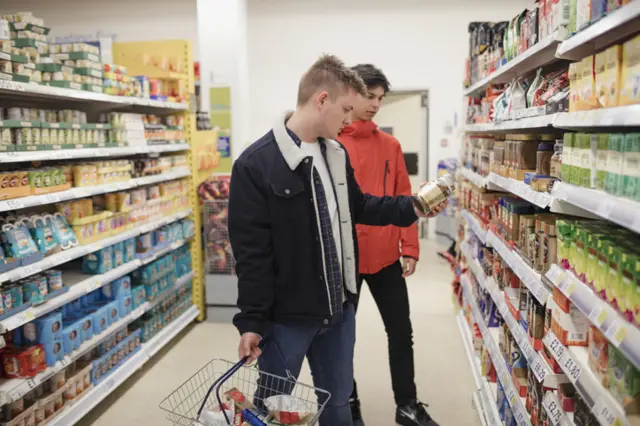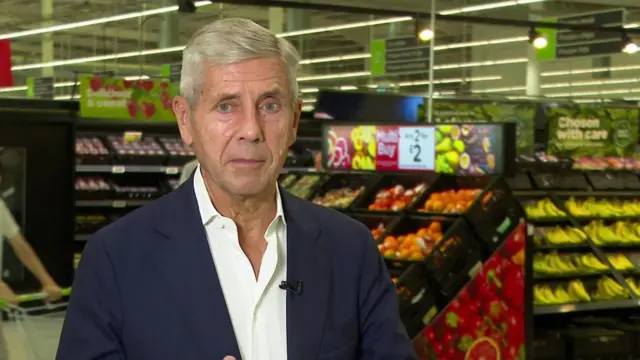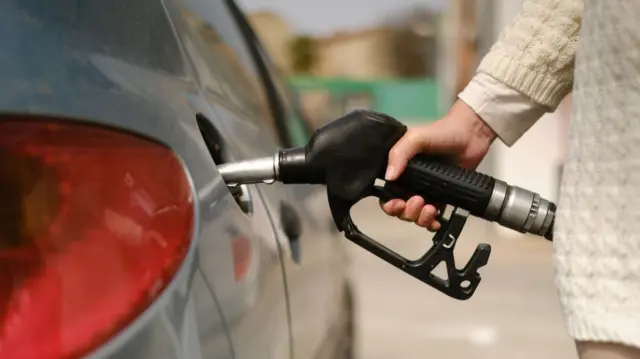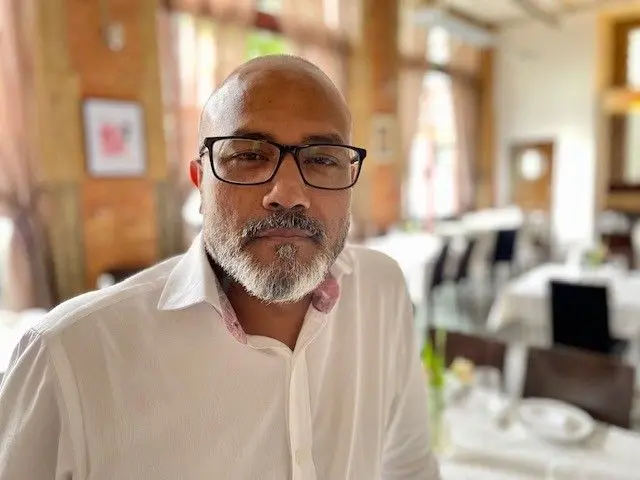Clothes shop owner: 'People will make more considered purchases'published at 11:34 BST 17 August 2022
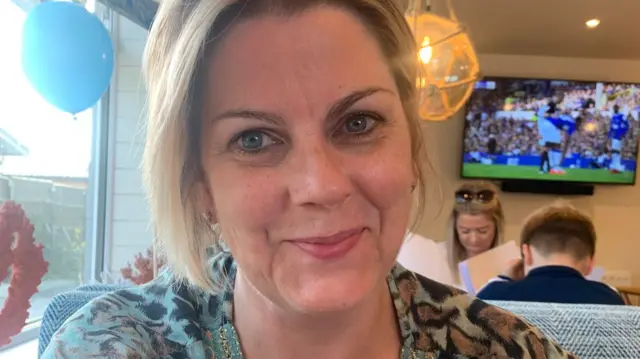 Image source, Sarah McCrossman
Image source, Sarah McCrossmanSarah McCrossman owns a clothes stop in Daventry, Northamptonshire and is preparing for decreased footfall this winter.
"We've had a brilliant summer," she says, "people are so excited about going on holiday... after everyone's had their summer holidays, it's going to fall off a cliff."
Speaking to Radio 5 Live, she says people are currently able to justify picking up a top for their first holiday in two years, but are likely to be making "considered purchases" in the winter.
"They're going to make that winter coat and jeans last," she says, "because item prices are a lot higher."
Sarah says she plans to have a "better online presence" to help boost sales in the winter as "the cost of running an online business is substantially less than having a bricks and mortar building... it's trying to get a balance between doing the two."
